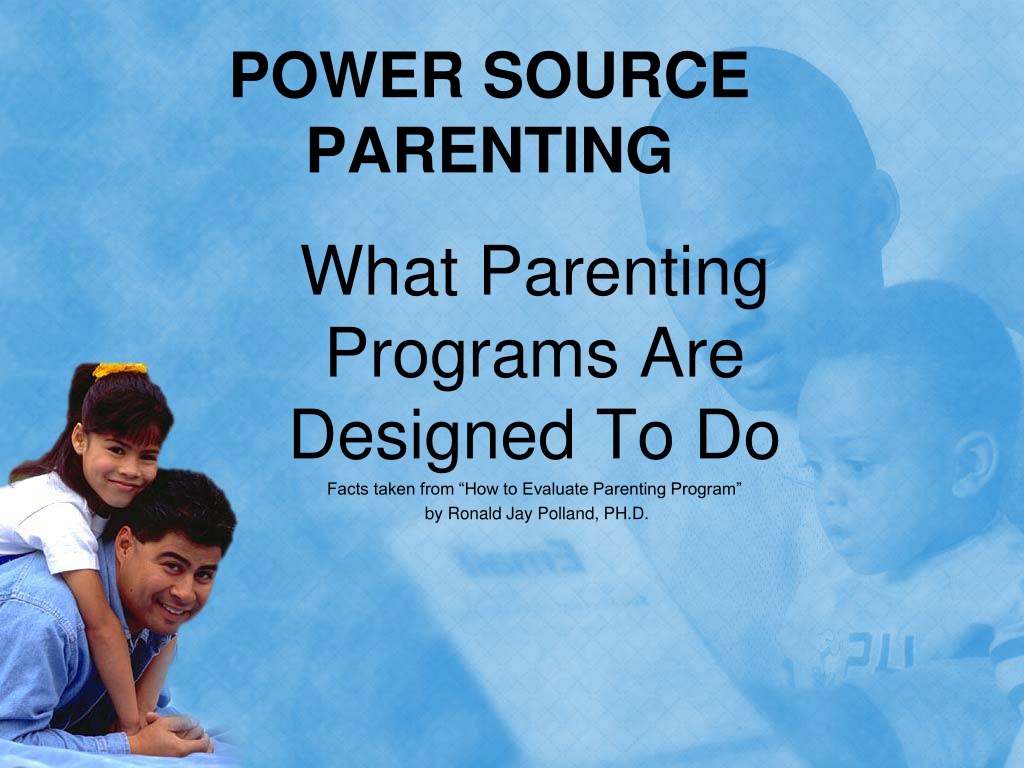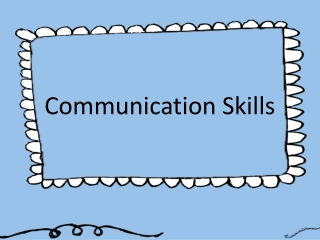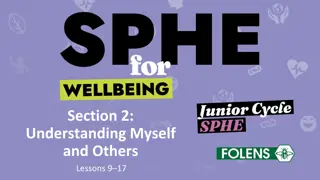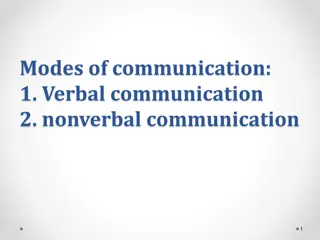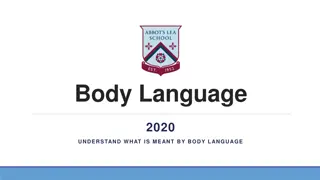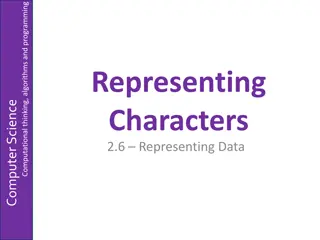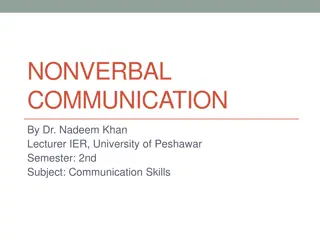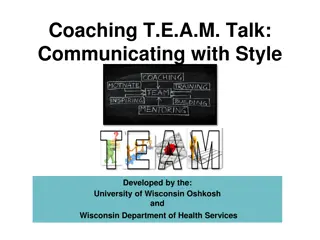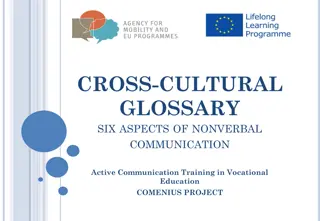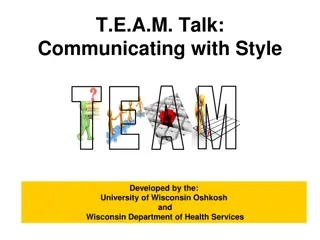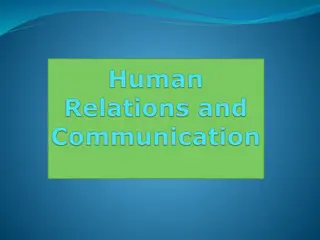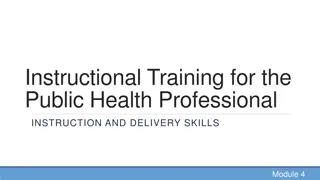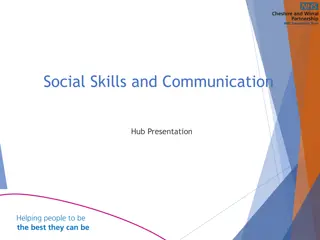Enhancing Your Nonverbal Communication Skills" (41 characters)
Discover the secrets of body language and learn how to improve your nonverbal communication skills through practice. Explore the different types of communication and the importance of verbal, vocal, and visual cues. Dive into the world of gestures, facial expressions, vocalics, proxemics, and more. Enhance your understanding of communication and its impact on interpersonal interactions.
Uploaded on Feb 27, 2025 | 0 Views
Download Presentation

Please find below an Image/Link to download the presentation.
The content on the website is provided AS IS for your information and personal use only. It may not be sold, licensed, or shared on other websites without obtaining consent from the author.If you encounter any issues during the download, it is possible that the publisher has removed the file from their server.
You are allowed to download the files provided on this website for personal or commercial use, subject to the condition that they are used lawfully. All files are the property of their respective owners.
The content on the website is provided AS IS for your information and personal use only. It may not be sold, licensed, or shared on other websites without obtaining consent from the author.
E N D
Presentation Transcript
POWER SOURCE PARENTING What Parenting Programs Are Designed To Do Facts taken from How to Evaluate Parenting Program by Ronald Jay Polland, PH.D.
Myths and misconceptions about parenting programs They are only for people who do not know anything about parenting. All parents can find something of value in parenting programs. They provide practical and timely advice to all parents who want to keep pace with their ever-changing teen.
They are only for parents who have bad kids. Perfect children and perfect families only exist in movies and on television. Parenting programs recognize this fact and are designed to offer sound, practical advice for the majority of parents and the majority of kids.
They are mainly for parents who have young kids or babies. If it seems like most of the books and programs on parenting deal with young kids and babies, you are right. One reason is because the early years of a child's life are the most important for establishing a sound foundation.
They are not in touch with reality. This is not the 50 s. 60 s, 70 s, 80 s, or the 90 s Good parenting programs are ones that are both reality-based and up- to-date on what is happening with today's families and teens.
They treat parents like they were kids in school Most parenting programs are educational programs. Some educational programs have been adapted from school-based programs. Some educational programs are often taught by school teachers (who may be more used to working with kids than with adults). These programs could cause parents to feel as if they are back in school that may not be a good thing.
They take too much time to complete Typically parenting programs cover such things as improving parent-child communication, setting limits, teaching responsibility, encouraging self-esteem, promoting values, and facing a whole host of challenges from teenage sexuality to drug and alcohol abuse. These are areas that take some time to cover effectively. Parenting programs may run for several weeks or months at a time and last anywhere from one to two hours per session for up to twelve sessions.
They do not affirm my cultural values Most authors tend to write about the culture they know best. Because it is the predominant culture in this country, most authors of parenting programs and books write about white, middle-class families. As a result, some parenting programs may not be sensitive to the cultural differences of minority populations.
They do not work Effective parenting programs provide a range of ideas (both new and old) that have been tested and proven to work with today s children and teens. Like any new skill, practice makes perfect. Parenting programs encourage but cannot control how often a parent will practice putting new skills into use. Again, what you get out of it is what you put into it.
Reaching parents "where they are at" Successful parenting programs give parents an opportunity to learn new information and skills that fit with their existing beliefs about parenting and communication. Programs that allow parents to relate new ideas with existing ideas and beliefs will have better results than programs that treat parents as "blank slates."
Involving and empowering parents in the program Getting parents to discuss their own personal experiences is a good way to have them think about their own ideas and beliefs about parenting. Long-term, parent discussion groups are an effective means for changing values and teaching styles.
Making the program culturally and socially relevant Critics of "typical" parent education programs feel they disregard the existing beliefs and practices of a community and try to impose the dominant, middle- class cultural standards of parenting. One way a program can avoid pressuring parents to change is to use respectful and sensitive professional educators and group leaders who are aware of the social, financial, and emotional stresses that parents have.
